Forever mediocre... 
Navigation
Install the app
How to install the app on iOS
Follow along with the video below to see how to install our site as a web app on your home screen.
Note: This feature may not be available in some browsers.
More options
You are using an out of date browser. It may not display this or other websites correctly.
You should upgrade or use an alternative browser.
You should upgrade or use an alternative browser.
NBA Team Results 1988-2013 - was your team a stud, a dud, or just stuck in mud?
- Thread starter Son of Skeletor
- Start date
- Tagged users None
- May 23, 2012
- 15,518
- 14,254
- AFL Club
- Collingwood

- Other Teams
- Tottenham Hotspur, New Orleans Pels
- Thread starter
- #102
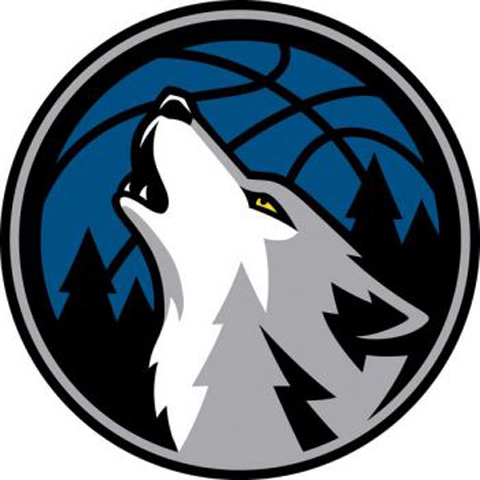
RANKING: 24
CHAMPIONSHIPS: 0
CONFERENCE TITLES: 0
DIVISION TITLES: 1
PLAYOFF APPEARANCES: 8
PLAYOFF SERIES WON: 2
SUB-30-WIN SEASONS: 11
I don't know if any NBA team's history is dominated by just one man to the extent that Minnesota's is by Kevin Garnett.
The Timberwolves' 24-year existence in the league can be neatly divided in to Three Acts- the pre-KG era (characterized by a marked lack of success), the Garnett Years (through which Minny was a perennial playoff team), and finally the misery of the post-KG years.
Consider that every single Minnesota playoff team in their history has included Kevin Garnett as a member. The Wolves have never qualified for the playoffs without him. In fact they've only once reached the 30-win threshold without him.
Kevin Love, Nikola Pekovic, Ricky Rubio and the rest of the modern Wolves have a perfect opportunity in 2014 to begin writing a long overdue new chapter in Minnesota basketball history.
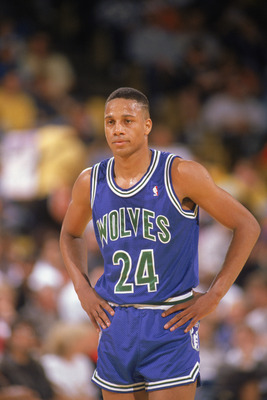
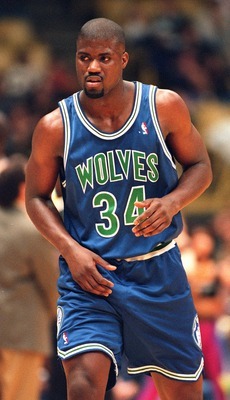
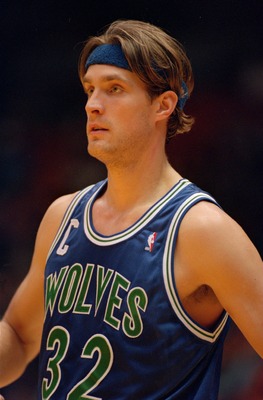
The Wolves were perhaps the slowest of the new-era NBA teams (Charlotte, Miami & Orlando) to find their feet in the league.
Minnesota's draft record left a little to be desired in the early years, although a lack of luck certainly played its part too.
Early Timberwolf picks included Pooh Richardson, Felton Spencer, and Luc Longley. Clearly they meant to address their centre position in their formative years, albeit it unsuccessfully.
In a cruel twist indicative of Minny's lack of luck, they landed the 3rd pick in the 1992 Draft. The first two players selected that year (by fellow expansion sides Orlando and Charlotte, no less) were future HOF centres Shaq and 'Zo. The Wolves had to make do with Christian Laettner.
The Wolves would not win so many as 30 games in any of their first seven seasons in the NBA. Again and again the lottery gods failed to shine on them. J.R. Rider arrived via the '93 Draft, proving to be an equally prolific shooter and pouter. Donyell Marshall would be their prize from the '94 Draft, selected right behind Jason Kidd and Grant Hill.
Meanwhile, the injury gods were not proving to be any more benevolent, de-railing the career of promising point guard Michael Williams.
To be frank, it wasn't working in Minnesota, as the team was nearly moved to New Orleans in 1994.
After the Wolves were spared relocation, new owner Glen Taylor and GM Kevin McHale set about turning the tide in basketball's northern outpost.
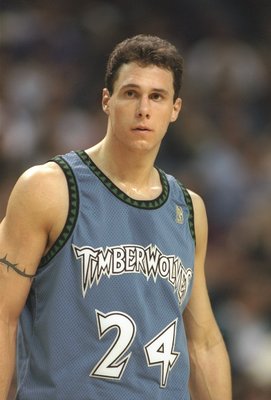
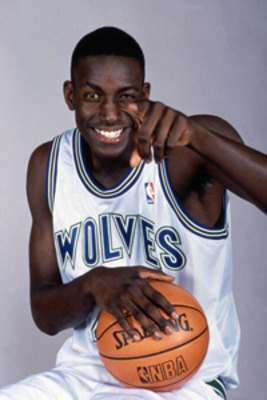
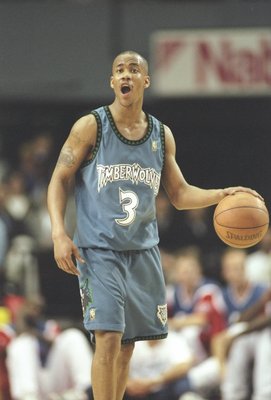
To their credit, Minny made their own luck in changing the course of the team's fortunes. Taking the precocious Garnett straight out of high school with the 5th pick in the '95 Draft, the Wolves pioneered a path that would become increasingly common in the NBA in future years.
In the meantime, Marshell had been sent to Golden State for multi-talented forward Tom Gugliotta. Laettner (a not dissimilar player to Gugliotta) and Rider would both too depart over the following months, as the Wolves cleared the decks to make room for their new young core.
After finishing 26-56 in Garnett's rookie season, the Wolves made a bold move in the '96 Draft, sending #5 pick Ray Allen to Milwaukee for the rights to #4 pick Stephon Marbury.
Led by talented trio Garnett, Gugliotta and Marbury, their play complimented by the wiles of veterans Terry Porter and Sam Mitchell, the Wolves made their maiden playoff bow in 1997 under Flip Saunders.
Despite injury striking down Gugliotta, the Wolves continued to develop, winning 45 games and pushing a veteran Seattle team all the way in the '98 playoffs. Minnesota had arrived in the NBA, their young stars turning heads. Though the future looked bright, challenges were imminent..
The Wolves' Garnett-Marbury-Gugliotta core would not survive the lockout.
Minnesota copped a lot of criticism for handing Garnett a six year, $126 million contract at a time when such matters were becoming THE issue in the league (hence the lockout). A lot of that criticism proved to be unfounded.
The contract was a gamble, given Garnett's (relatively) tender age of 22. In real terms, it put his salary on a par with Shaq's, at the top of the league. History would prove that Garnett would go on to justify the faith, becoming a genuine two-way force in the league over the coming years. Much like the Wolves' current contract negotiations with Pekovic show, paying a premium price for potential (and loyalty) is an unavoidable fact-of-life for small market teams.
It was argued that Garnett's contract had also cost the team his frontcourt partner's services. Gugliotta, who played well in Minny and was a good foil for Garnett, was lured away with a big contract by Phoenix.
The Wolves though had been planning to keep cap room in reserve to re-sign their other young star Marbury in the near future. This is where the real problem lay, as Gugliotta reportedly did not wish to play alongside the headstrong young guard anymore. Marbury then further muddied the waters by demanding a trade, supposedly tired of playing the supporting actor role. Garnett's contract was thus seen to have 'caused' the departure of his two most talented team-mates, which was never strictly true.
As it happened, Minnesota salvaged the situation somewhat by netting the immensely talented Terrell Brandon and the draft rights to Wally Szczerbiak as their compensation for sending Marbury to New Jersey.
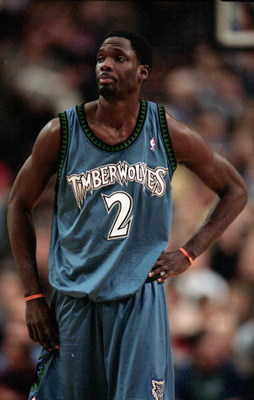
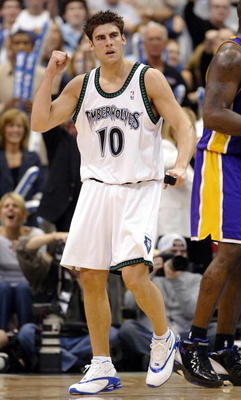
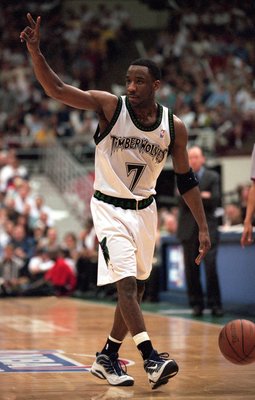
In the meantime, the Wolves had done a decent job in scrambling to find affordable help. Joe Smith, Malik Sealy and Bobby Jackson were added cheaply, while '98 draftee Rasho Nesterovic was showing promise as a young big man.
The Wolves extended their playoff qualification streak to four successive years, breaking the team record in winning 50 games for the 1999-2000 season. Though they were still unable to advance past the first round, the mix of young talent (Garnett, Szczerbiak, Nesterovic, Smith, Jackson) and savvy veterans (Brandon, Sealy) still appeared likely to break that drought sooner rather than later.
Unfortunately, 2000 would be marred by two catastrophic events for Minny. Popular defensive wing Sealy was tragically killed in a car accident, aged just 30. To make matters worse for the Wolves, the NBA ruled that the team's signing of Joe Smith violated team rules. The breach cost them Smith, GM McHale's services for 12 months, and most cripplingly the forfeiture of three valuable first round picks (originally it was to be five).
Given this unfortunate turn of events, Minnesota had an almighty struggle on their hands to maintain the precious momentum they had been building. To their credit, they again scrambled well in attempting to surround Garnett with a decent supporting cast. A young Chauncey Billups was snapped up on a bargain two-year deal, replacing the departed Jackson, while LaPhonso Ellis temporarily replaced Smith in the frontcourt. Minnesota would win 47 and 50 games over the next two seasons, keeping alive their twin streaks (playoff qualification, followed by first-round failure) in the process.
Ill-fortune had struck once more in the meantime. Brandon, a borderline All-Star and top-notch point guard, suffered a serious injury early in 2002- aged just 31, he would never play again. Having been thrust into the starting job Billups blossomed during the second half of the '02 season. The Wolves, unable to take a trick at this juncture, promptly lost his services to a Detroit team quietly putting together a championship squad.
Again the resilient Wolves shrugged off these setbacks, raiding the bargain bin once more to sign Troy Hudson, Kendall Gill, Rod Strickland, Gary Trent and Marc Jackson. A club record 51 win season followed, setting up a first round encounter with the three-time defending champion Lakers. Led by newly-crowned MVP Garnett, the gritty Wolves proceeded to shock LA in Games 2 & 3, and behind the unlikely heroics of Hudson, took a stranglehold in Game 4 at the Staples Center..
Minnesota would blow the chance to take a commanding 3-1 series lead heading back home, and eventually capitulated in Games 5 and 6. If you're keeping count, this marked the seventh consecutive season in which Garnett, Saunders and the Wolves had been bounced in the first round of the playoffs. They had squandered their best chance to advance since losing narrowly to the Sonics in the '98 playoffs.
Frustrated, the Timberwolves and McHale pushed all their chips to the middle of the table, acquiring veteran All-Stars Sam Cassell and Latrell Sprewell via trade. They also gambled in handing former #1 pick Michael Olowokandi a sizable deal in an attempt to finally find a centre capable of sharing the load inside with the over-worked Garnett.
The moves paid off (well not the Olowokandi one so much). Flanked by two genuine offensive threats, Garnett and his Wolves raced to to MidWest Division crown, winning 58 games and securing the top seed in the West in the process.

Not even lengthy injury layoffs to Szczerbiak and nominal sixth man Hudson during the season could slow the gathering Minnesota momentum. The Wolves finally slayed their first round demons, disposing of the Nuggets easily enough. A curious match-up awaited them in the next round.
The Sacramento Kings stood between Minnesota and trip to the Western Conference Finals. These two teams, the perennial whipping boys in the unforgiving Western Conference in years gone by, were now to face off for the chance of a legitimate shot at an NBA title.
The two teams traded blows, splitting the first six games 3-3. The Wolves had reason to be glad of their stellar regular season form, as their seeding dictated they would host a nerve-wracking Game 7 in front of their devoted fans.
Minnesota's triumph in an epic finale would prove the high-point in the Timberwolves' short history.
Unfortunately the injury bug would bite them again, striking down Cassell and rendering him virtually ineffective during the '04 Western Conference Finals against the star-studded Lakers. Given the Wolves' starting line-up for Game 6 included Darrick Martin, Trenton Hassell and Olowokandi, the odds were against them in this match-up. Nevertheless, Minnesota fought hard, missing a chance to tie the series and force a Game 7 in squandering a fourth quarter lead in Game 6.
After that valiant performance, neither Garnett, coach Saunders, GM McHale or the long-suffering Timberwolf supporter base could possibly have envisaged how rapidly Minnesota's fortunes would deteriorate.
Their were tensions within the team during the next campaign, during which Saunders was replaced by McHale himself as coach. Despite a late rally, the Wolves would finish 44-38 and miss the playoffs for the first time since 1996.
Sprewell, 34, not for the first time in his career, became a malcontent and subsequently a liability. Cassell, 35, would depart in a disastrous trade with the Clippers- the Wolves sending a future first round pick (foolhardy, especially given their drafting penalties incurred during the decade) with the veteran point guard to acquire.... Marko Jaric. Oh the humanity.
Having forfeited the majority of their recent draft picks, Minny could ill-afford to squander such precious picks as they did keep. Sadly, they would take Rashad McCants in the '05 Draft, followed by Randy Foye ('06) and Corey Brewer ('07).
In the meantime, the Wolves had descended into mediocrity, posting just 33 wins in 2006, followed by 32 the following year. Garnett watched on anxiously as the seasons ticked by, helpless to arrest the slide when his main supporting actors were Ricky Davis and Mark Blount.
In 2007, Minnesota rewarded Garnett for his previous loyalty and immense contribution to the organisation by sending him to a Celtic team intent on contending for the title KG so desired. The Kevin Garnett era was over after 12 years. What awaited the Wolves in the absence of their icon was uncertain..
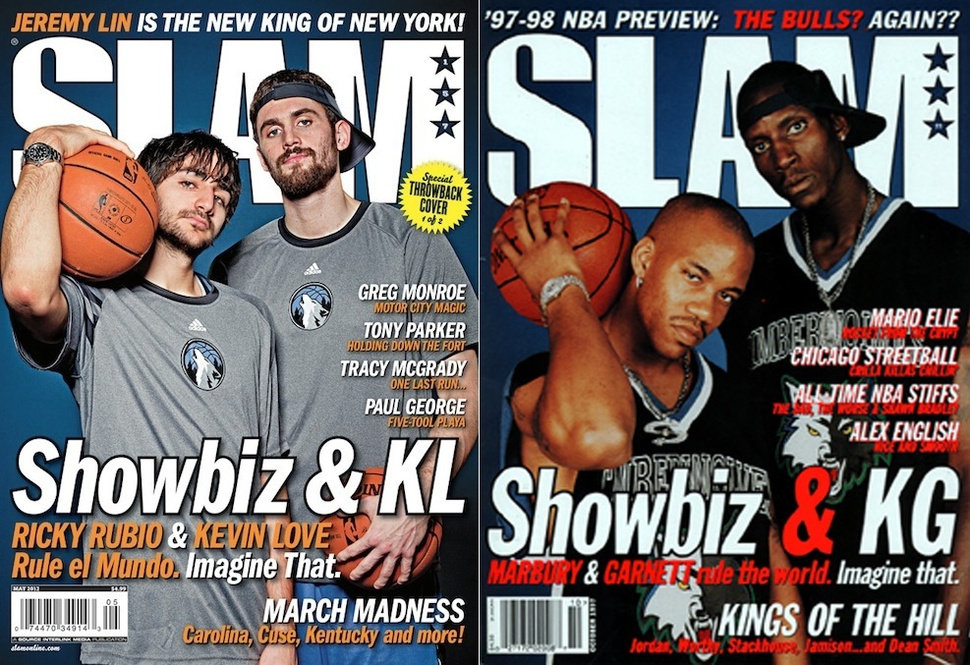
It probably serves little purpose dredging up the comic calamities of Kahn's reign of terror here. The main sore points for Wolves fans will remain his handiwork in acquiring Darko Milicic, Johnny Flynn and Wesley Johnson, whilst letting Ty Lawson (among others) depart.
Much like Memphis, Minny have found a way to muddle through their drafting mess and somehow still emerge with some talented building blocks- what Love, Rubio, Pekovic and Williams can achieve together remains to be seen. Wolves fans will hope parallels between Garnett/Marbury and Love/Rubio begin and end with harmless magazine cover-shots.
Nine years after their maiden playoff series victory, six years after the departure of the man who did more than any other to lift the profile Minnesota basketball, Wolves fans are ready for something, anything to cheer.
If Rick Adelman can keep his talented squad on the court and out of the infirmary, the Timberwolves may finally be ready to begin writing their long-awaited Fourth Act.
- May 23, 2012
- 15,518
- 14,254
- AFL Club
- Collingwood

- Other Teams
- Tottenham Hotspur, New Orleans Pels
- Thread starter
- #105
Messenger, Kahhhhnnnnnnn is calling. (As in the Minny review is up)
Thanks BoshtrichBurger - I knew I left someone important out.
Apart from Randy Breuer that is.
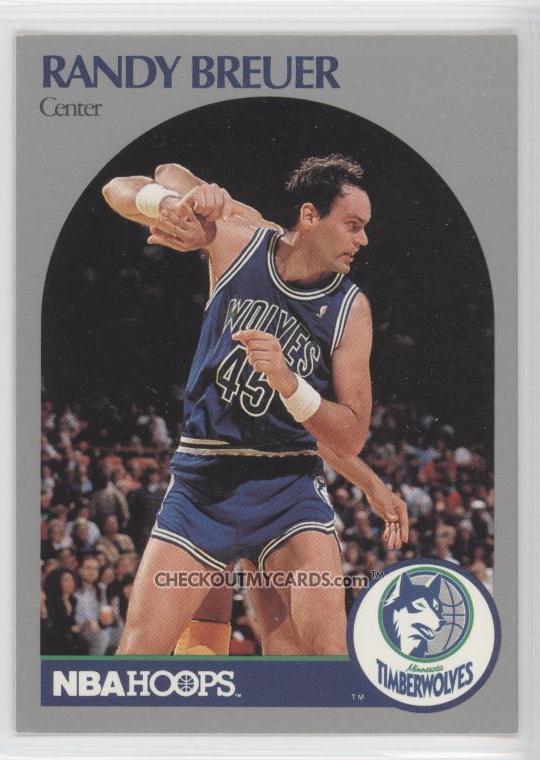
Messenger
No, I’m just disappointed
Son of Skeletor I'm impressed. Really good work, sir.
SUPER HUMAN!
- May 23, 2012
- 15,518
- 14,254
- AFL Club
- Collingwood

- Other Teams
- Tottenham Hotspur, New Orleans Pels
- Thread starter
- #108
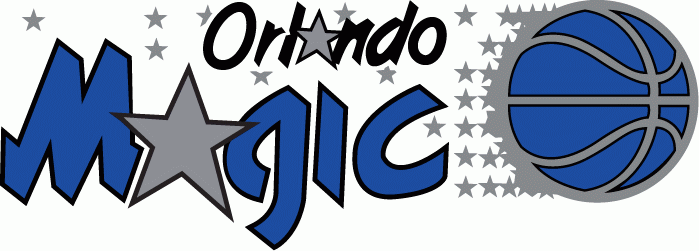
RANKING: 14
CHAMPIONSHIPS: 0
CONFERENCE TITLES: 2
DIVISION TITLES: 3
PLAYOFF APPEARANCES: 14
PLAYOFF SERIES WON: 11
SUB-30-WIN SEASONS: 4
Every time I think of Orlando, I'm reminded of that 'Lottery' episode of The Simpsons..
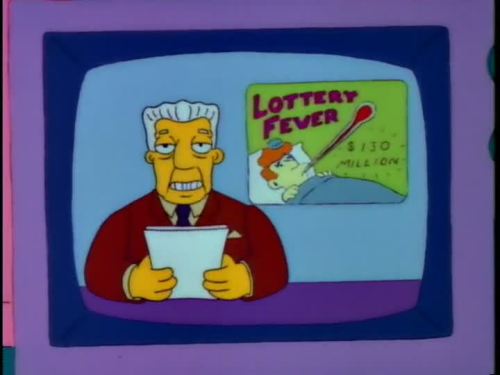
The advertisement at the start of the episode for the State Lottery runs something along these lines..
Employee: I don't need your crummy job any more, Mr. Employer- I just won the Lottery!
Employer: Oh yeah? Well who needs employees? I just won the Lottery too!
Together (to camera): We both won the lottery! Why don't YOU win the Lottery too?
Voice-over: The State Lottery- where everybody wins!
Voice-over (muffled): Actual odds of winning are 1 in 350,000,000
***
This is how I remember those carefree days of the early 90s, when the Magic in their infancy won the ultimate golden ticket, and with it the right to select Shaq in the 1992 Draft.
Twelve months later, against all the odds, Orlando struck the jackpot again- Chris Webber or Penny Hardaway, the agony of choice was theirs.
The Magic never again frequented the Eastern Conference basement after lightning struck twice, until a lean 2003-04 season broke a run of 11 successive seasons playing at .500 or better.
Wouldn't you know it, Orlando once more invoked the spirit of their nickname and proceeded to win the Lottery again. As their prize this time in Dwight Howard matured (physically at least), the Magic would again become a perennial playoff combatant.
So, are we to conclude that Orlando's respectable record of 14 playoff appearances in 19 seasons, including two trips the Finals, is little more than the product of dumb luck? Is their #14 ranking here to be eyed contemptuously?
While it is inarguable that only Cleveland and perhaps Charlotte/New Orleans could boast a mastery of the ping pong balls to rival the Magic's, there is more to the Orlando story than Lottery Fever.

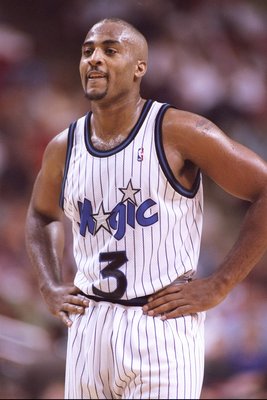
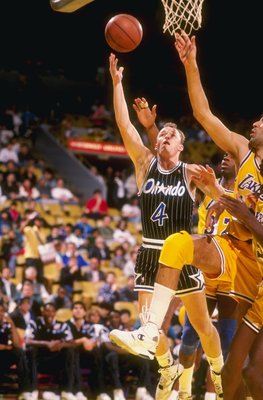
The Magic initially settled well into life in the big league.
Having nailed their initial draft selection at #11 in the '89 Draft (Nick Anderson) and astutely picked up a capable starting point guard in Scott Skiles in the expansion draft, Orlando won a commendable 31 games in their second NBA season.
Subsequent draftees included the sweet shooting wing Dennis Scott (1990) and big man Brian Williams (later known as Bison Dele, taken in 1991). Anderson, Scott and Williams all showed signs of becoming decent NBA players, however a spate of injuries during the 1991-92 season weakened the team, leading to a 21-61 record.
Those minor problems were still forgotten when Shaq fell into their laps in the '92 Draft, leading to a whopping 20 game improvement the following season. After just missing out on a playoff berth, few were prepared for what happened next..
Orlando would certainly waste little time in making good use of their stroke of fortune. Having decided that the talented Hardaway (loosely compared to Magic Johnson if I recall correctly) would compliment O'Neal better than the equally gifted Webber, the Magic set to work to build a contender.
That their first two draft choices had been prolific outside shooters in Anderson and Scott proved to be a blessing. Being able to surround the behemoth Shaq with deadly sharpshooters meant that Magic opponents would spend many a night picking their poison- being demolished inside or bombed into submission from the perimeter.
Still, the young Orlando were unceremoniously swept in their playoff debut against the gritty Pacers during the '94 post-season. Lacking another big man inside to compliment O'Neal, the Magic promptly went out and found almost the perfect fit in Horace Grant.
Possessing vast playoff experience, a selfless attitude and excellent interior defensive skills, Grant rounded out a fearsome starting five for Orlando. As the young Shaq and Penny combination captured the imagination of the wider basketball public, Orlando swept its way to 57 wins and top seeding in the East.
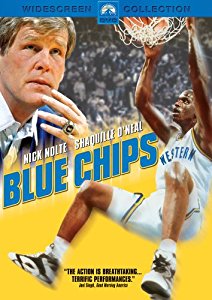

The Magic's '95 Playoff campaign featured several memorable games. I couldn't split them, so I've included them all here.
After disposing easily of a mediocre Celtic team in the first round, Orlando faced their first big test in the conference semis against a Chicago team featuring a newly-returned Michael Jordan. These frantic final moments in the opening game of the series must have helped further the self-belief of the still-young and inexperienced Magic squad.
They would go on to take the series in six games, becoming the only team to defeat a Michael Jordan-led Bulls team in the playoffs during the entire decade.
Orlando had passed their first test, but another challenge was in store- awaiting them was the Indiana team that had embarrassed them in the playoffs 12 months earlier. The first three games were tight affairs, all falling in favour of the home team. Facing a 2-1 deficit, the Pacers desperately needed to win Game 4 at home to stay in the series..
Orlando would bounce back after the remarkable (and heartbreaking) scenes in Game 4, triumphing in a closely fought Game 5 at home. The Magic would finally put down the Pacer resistance with a commanding Game 7 performance, winning their way through to their first NBA Finals.
There awaited them a Houston team that had been crowned champions just 12 months ago, but had in 1995 taken a very different route to the Finals, winning through surprisingly as the 6th seed from the West.
With the advantage of home-court in Game 1, the Magic showed little signs of nerves, racing out to an early lead. A Houston onslaught in the 3rd quarter, led by a barrage of three-pointers from Kenny Smith, turned the tables however, leading to an epic final quarter..
(Forgive my self indulgence here, but why did Dick Bavetta call a blocking foul at 2:25?)
Orlando fans (all NBA fans really) will never forget Nick Anderson's infamous free-throw-line meltdown at the end of regulation, neither Kenny's Smith's dagger-three, nor Olajuwon's ridiculous back-handed tip-in in the final second.
The '95 championship was decided on those crucial few plays. Orlando, no doubt crestfallen, were never at the races in Game 2, falling 20 points behind before half-time on their own court. The Rockets, perhaps sensing self-doubt in their young opponents, took the opportunity to go for the jugular, sweeping the Magic.
The Magic would nevertheless do very well post 60 wins the following season, despite being hampered by injuries to Shaq and Grant. In any normal season, such a win total would go close to securing the top seeding, but this was of course the year of the 'Invinci-Bulls', who complied a staggering 72-10 record.
After winning through easily to a showdown with the Bulls in the Eastern Conference Finals, the fragility displayed in previous playoff campaigns unfortunately came to be displayed once more. The Magic, were crushed by the remorseless Bulls, swept from the post-season for the third successive season.
The continued injury concerns of Horace Grant played a part in this latest embarrassing exit, but their were other chinks in the otherwise formidable Orlando armour. It was rumoured that some players were disgruntled with coach Brian Hill's methods, while scuttlebutt suggested that Shaq was keeping a wary eye on Penny, eager not to have his position as team leader usurped.
Personally, I wonder whether a move the Magic made three years earlier- sending '91 draftee Brian Williams to Denver for peanuts- had come back to haunt them a little. While the Magic could boast an awesomely balanced starting five, their bench was relatively shallow beyond Brian Shaw.
Had they found a way to hold on to the admittedly eccentric Williams, he would have made an excellent energetic big-man off the bench during the '95 and '96 playoff runs (a role he ironically filled in the Bulls's '97 title winning season).
Still, Orlando figured to have years more of title contention ahead of them. They seemed blissfully unaware of the surreptitious moves one Jerry West was making, far away on the other side of the country...
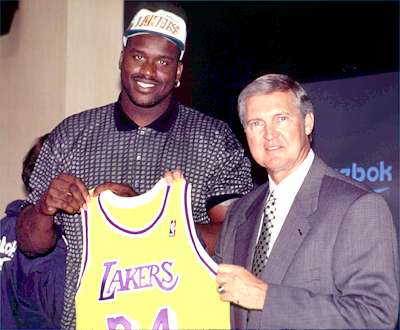
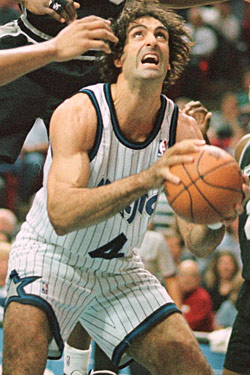
Shaq's departure to LA was devastating for the Magic. Setting aside the fact that they did not receive a scrap of compensation in return to soften the blow, they also had in place a roster perfectly designed to compliment Shaq's powerful presence in the paint. What the gods had delivered to Orlando, they had also swiftly taken away.
There was no road-map for the team to deal with this unexpected turn of events. They certainly didn't rest on their laurels, trading for former Miami centre Rony Seikaly. Seikaly was a competent big man, a double-double machine for the majority of his career- even still, just looking at the two pictures above must have been enough to bring even the staunchest Magic fan to weep.
Under legendary coach Chuck Daly the Magic managed to mesh the remnants of the brief golden era in Orlando (Grant, Anderson, Scott and a worryingly fragile Hardaway) with a platoon of unheralded blue-collar soldiers- Derek Strong, Bo Outlaw & Darrell Armstrong.
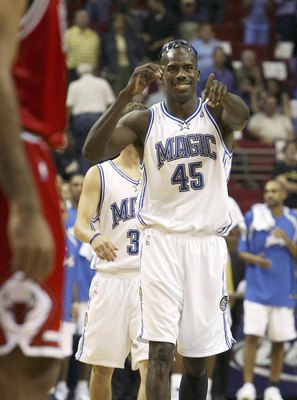
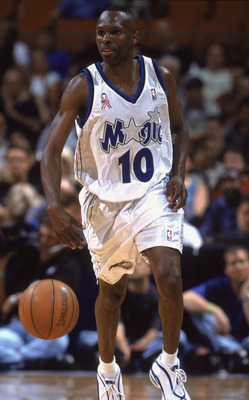

The Magic, to their credit, would not fall below .500 in any of the seven seasons following Shaq's tumultuous departure. Hardaway, battling an array of ailments, would still occasionally show glimpses of the play that had seen him poised on the verge of super-stardom. He almost single-handedly upset the heavily favoured Miami in the first round on the '97 playoffs, averaging 31 ppg as the Magic turned a near-drubbing into a near-miss.
Daly had led the team to an improbable 33-17 record in the lockout-shortened '99 season, only to be upset in the first round by the emerging Allen Iverson-led Philadelphia. In reality, Daly had done remarkably well to coax so much from an honest but limited group, with Anderson and Grant now into their 30s and Penny deprived of much of his explosive athleticism.
Under new coach Doc Rivers, the 2000 Magic continued their pattern of gritty over-achievement, this time without the services of the final links to the glory years in Hardaway (departed to Phoenix), Grant (Seattle) and Anderson (Sacramento).
Despite the honest performances by their team, Orlando crowds were beginning to dip a little. With money available after the departure of the last of their stars, the Magic prepared to make a big splash in the 2000 free agent pool..
Seldom has one team gone 'shopping' in the NBA off-season to the extent that Orlando did in preparation of the 2000-01 season.
On top of their shopping list were two elite young talents in Grant Hill, out-of-contract in Detroit, and Tim Duncan, already a championship winner in his short career to date in San Antonio.
The two stars shared an agent and were friendly. The first domino in Hill fell, and the Magic anxiously awaited news from Duncan's camp. Legend has it that Spurs stalwart David Robinson personally intervened to help convince Duncan that his future would be best served in San Antonio.
Batting 50%, Orlando turned their attention to the next name on their list, Tracy McGrady. The young swingman, already a three year veteran at the tender age of 21, seemed willing to swap Toronto for a warmer climate. To the Magic's delight, he added his name to Hill's in signing up for an exciting new era in Florida.
Further bolstered by the arrival of #5 draft pick Mike Miller, Orlando looked poised to become a serious contender once more in a rapidly changing Eastern Conference. The once-dominant Bulls had long since been dismantled, while the ultra-consistent Pacers and Knicks were finally aging after years in contention. Meanwhile down the road in Miami, the Heat had been rocked by news that star centre Alonzo Mourning had been diagnosed with a serious kidney problem and was out indefinitely.
The winds of change were blowing, and opportunity suddenly knocked once more for the Magic. Sadly for them, they were also to be visited by a never ending stream of medical professionals in the coming years as well.
McGrady, perhaps the least safe 'bet' of the three young stars the Magic had pursued, exploded in Orlando, averaging nearly 28ppg over the next four seasons. Hill on the other had, widely considered a coup for the Magic upon signing, was about to enter is own recurring injury nightmare.
While McGrady was averaging 28 points per game and earning a plethora of platitudes in recognition of his play, Hill would be limited to a scarcely believable 47 games in four seasons.
McGrady's heroics, aided by the sharpshooting of Miller, veteran leadership of Armstrong and defensive contributions from the likes of Outlaw and the returned Horace Grant (all under the steady eye of Rivers), proved to be enough to maintain Orlando's position as a playoff team. Unsurprisingly, without Hill's services, the Magic proved only first round nuisance-value. Things fell apart in 2004, leading to the departure of Rivers. A trip to the Lottery however, might prove to be just what the doctor ordered..
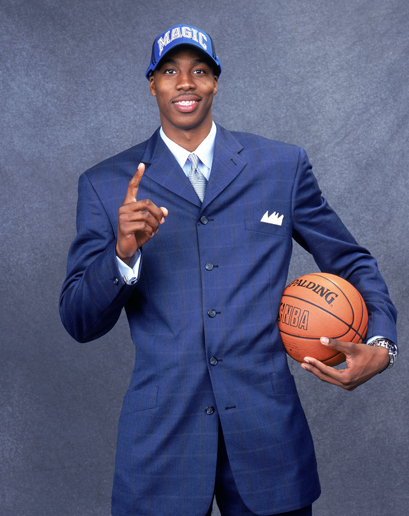
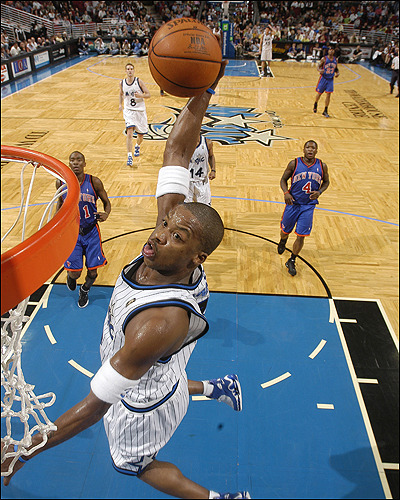
Why don't you win the Lottery too?
Again in their hour of need, Orlando pulled the proverbial rabbit out of the authentic custom-fitted snap-back hat, earning first crack at the 2004 Draft class. They chose a gifted young big man with a penchant for goofiness..
The 2004-05 season was a time of change all round for the Magic. After Rivers departed to Boston, a bizarre coaching merry-go-round process finally settled upon blast-from-the-past coach Brian Hill.
In the meantime, the Magic made the fateful decision to trade the electric McGrady to Houston for Steve 'Franchise' Francis and Cuttino Mobley. While McGrady has become a figure of fun for his consistent inability to lead teams past the first round of the playoffs, a cursory glance at his rather meagre supporting casts on many of those occasions suggests that he is too harshly marked for his perceived failures.
Joining Dwight, Francis, Mobley and coach Hill in the nu-Magic revolution was young point guard draftee Jameer Nelson and the flaky but undeniably skilled Hedo Turkoglu. Also making their way on to the team where reserve big men Kelvin Cato and Tony Battie.
Perhaps the most unexpected 'new' face was that of Grant Hill. Finally cleared to play, Hill would manage an encouraging 67 games for the season, demonstrating he had lost none of his touch. Despite all this new talent, the Magic failed to win their way back to the playoffs, compiling back-to-back 36 win seasons.
Having washed their hands of the troublesome Francis, Orlando finally returned to the post-season in 2007, albeit briefly as they suffered a sweep at the hands of Detroit. Coach Hill departed for the second time, to be replaced by the combative Stan Van Gundy.
Also departing would be Hill, who really only played two and a half seasons over the duration of his lucrative seven year contract signed in the heady days of 2000. Orlando fans must still wonder what might have been had he and McGrady (or even he and Duncan) been able to share the court together for a meaningful period of time.

With the (pricey) addition of long-range bomber Rashard Lewis via free agency, the Magic were about to embark on another title-chasing adventure.
Under Van Gundy, the Magic would perfect the art of surrounding the imposing Howard with a motley crew of dead-eye perimeter shooters. Howard blossomed into the most dominant big man in the game, and the wily Van Gundy was able to find a way to best harness his considerable powers for the benefit of the entire team. During a five year run between 2007 and 2012, the Magic would hover in the upper reaches of the East, reaching the peak of their powers in 2009 and 2010.
A memorable run to the Finals in '09 ended in Orlando falling at the final hurdle again, just as in 1995. In 2010 an equally strong team, this time with an aging Vince Carter in place of the departed Turkoglu, breezed through the early playoff rounds after a 59 win season, only to fall honourably in the Eastern Conference Finals to a great Boston team in six.
The messy end to Dwight's years in Orlando revived memories of former favourite Shaq's acrimonious departure in 1996.
However, one does not fear for the Magic, as they have shown an ability to consistently bounce back from adversity. Lest anyone attribute this resilience purely to lottery luck, I'll leave you with a piece of trivia:
Orlando has been home to FIVE of the winners of the NBA's Most Improved Trophy in their short 24 year history (Scott Skiles, Darrell Armstrong, Tracy McGrady, Hedo Turkoglu and Ryan Anderson).
Yes, the lottery gods surely shine upon the Magic Men from Florida as much as anyone. However it would be remiss of us to ignore Orlando's consistent capacity to bounce back from adversity, nurturing the odd unknown gem along the way.
With likely (if low-key) types including Oladipo, Harris, Harkless, Vucevic and Nicholson already showing promise, the flowering of a new generation of Orlando talent seems imminent once more.
Brilliant stuff! Loved the Magic write-up. 

Yes the magic is all set to get another no.1 draft pick centre which it can develop into a star and donate as its once a decade offering to appease the Lakers...
Jokes aside though interesting write up as always.
Jokes aside though interesting write up as always.
- May 23, 2012
- 15,518
- 14,254
- AFL Club
- Collingwood

- Other Teams
- Tottenham Hotspur, New Orleans Pels
- Thread starter
- #111

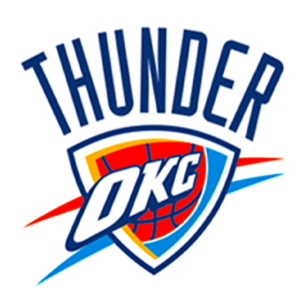
RANKING: 11
CHAMPIONSHIPS: 0
CONFERENCE TITLES: 2
DIVISION TITLES: 6
PLAYOFF APPEARANCES: 16
PLAYOFF SERIES WON: 16
SUB-30-WIN SEASONS: 2
This one's going to be a little awkward. Apologies in advance if due sensitivity be lacking in any way.
In golfing parlance, there are several teams who played a very strong 'first nine' over the previous 25 NBA seasons, only to see their ranking slip owing to a pedestrian effort thereafter. Seattle was one of those teams.
The Sonics were a powerhouse in the 90s under George Karl, a phenomenally consistent team (at least when it came to the regular season). They were one of several Western Conference teams (Portland, Phoenix, Utah) who played an awful lot of playoff basketball without ever managing to break through for that elusive title.
For various reasons the team went into a slow but steady decline following Karl's departure, culminating in the acrimonious departure of the team from the Emerald City to slowpokin' Oklahoma in 2008.
It's hard to reconcile what's happened since then with events in the two decades that preceded it, but for simplicity's sake I've combined the records of the Sonics and the Thunder.
Two trips to the Finals (under two different names), six Division crowns, sixteen trips to the playoffs and only two seasons spent under the 30-win mark means the Sonics/Thunder ultimately come in a very competitive 11th spot in these rankings.
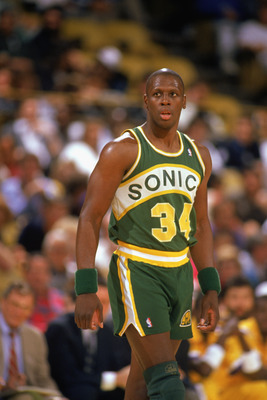
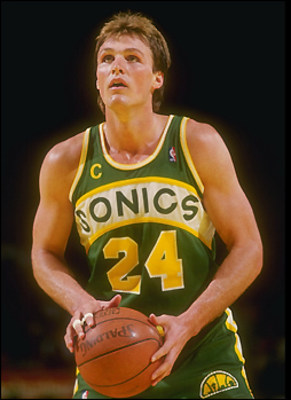
After winning their first (and only) NBA title in 1979, the Sonics spent most of the 80s as a fringe playoff team. Between 1983 and 1991, they would win no less than 31, but never more than 47 games.
During the mid 80s, the Sonics boasted a prolific scoring trio in Tom Chambers, Dale Ellis and Xavier McDaniel, their offensive firepower helping to propel Seattle to a surprise Western Conference Finals appearance in 1987. A lack of depth and defensive nous however ensured that this Sonics team, though exciting to watch, was unlikely to ever win a title.
The Sonics had some interesting experiences at the Draft table in the late 80s, which helped shape their next decade. Holding two top-10 picks in the 1987 Draft, Seattle took Derrick McKey and Scottie Pippen- the future Hall-of-Famer immediately being dealt to the Bulls for the rights to Olden Polynice. The Bulls incidentally also held two top-10 picks that year- they ended up with Horace Grant and Pippen.
Nevertheless, the Sonics would hit the jackpot in the '89 Draft, taking teenager Shawn Kemp at #17. Fortune then smiled further on Seattle when, after having traded their 1990 Draft pick to Golden State for the rights to Dana Barros, the height-deficient Warriors promptly returned it to the Sonics months later for centre Alton Lister. After Seattle finished 41-41, they beat the odds to earn the #2 pick in the '90 Draft. They would use it to take Gary Payton.

The seeds of a Sonic-dynasty had been sewn, although both Kemp and Payton would take a couple of years to truly blossom.
In the meantime, Seattle seemed to have picked up from where they'd left off during the 80s, their offensive talent offset by their defensive deficiency, leading to (admittedly attractive) .500 basketball. The immensely popular McDaniel and the polarising Ellis had been traded, bringing two equally prolific scorers, Eddie Johnson and Ricky Pierce, in return.
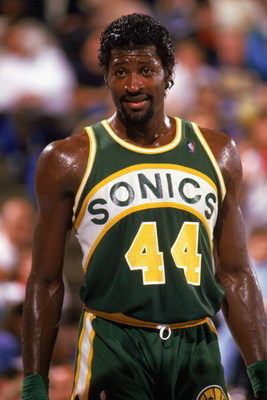
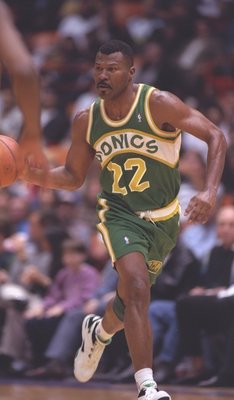
The Sonics made another trade around this time, adding the enigmatic Benoit Benjamin. Benjamin was one of those players that could look great- a genuine seven-footer who was blessed athletically and capable of compiling seemingly respectable numbers- but in reality he was a total black-hole on offense and a cancer in the locker-room. Like syphilis he was passed around the league in the early 90s, from team to team, each new coach as horrified to learn what he'd inherited as the last.
Luckily for Seattle, they could also count on the services of a player who was almost the antithesis of Benjamin in every way in Michael Cage. Undersized for a centre at 6'9, Cage possessed little that made him remarkable save for a nose for rebounds and a fabulous 'do (see above). He was nevertheless a remarkably efficient player who made vital contributions to the only stat that really matters- wins. To draw a comparison with a current
Speaking of Kemp, obligatory dunk package:
Despite the development of young trio Kemp, Payton and McKey, the one-two scoring punch provided by Pierce and Johnson and the blue-collar contributions of Cage and McMillan, Seattle remained unable to take that next step towards serious contention. Halfway through the 1991-92 season, K.C. Jones was replaced as coach by George Karl.
The Sonics ended the season on an upswing, winning 27 of 42 games under Karl before upsetting Golden State in the first round of the '92 playoffs.
Karl would harness the raw athletic ability of his young team, turning defensive demons Payton and McMillan loose in the backcourt where they would wreak havoc and cause turnovers galore. That Karl was (eventually) able get the willful Payton on-side was perhaps his greatest victory as Seattle coach (and there were to be a lot of them).

Kemp and Payton in particular would blossom under Karl's tutelage, thriving in the innovative, chaotic system Seattle now unleashed upon the NBA.
Seattle was about to enter a golden era- between 1992 and 1998, the Sonics would average nearly 60 wins per season, a staggering achievement. Although they had enjoyed their brief adventure in the '92 postseason, the team was aware that they needed to be able to count on more from their highest earner in the erratic Benjamin than they had received. Seattle also lacked consistent outside shooting, which could prove an Achilles Heel in the grinding post-season where they could not rely exclusively on their explosive transition offense to put points on the board.
In notable mid-season trade, they were able to kill two birds with one stone, swapping the maddening Benjamin for the smooth Sam Perkins (that they'd managed to fleece the Lakers in a trade was noteworthy and impressive too). The laconic Perkins owned a sweet shooting touch for a big man, and though he was not the shot-blocking presence Benjamin was, his presence at the offensive end brought an entirely new dimension to Seattle's play.
The Sonics gave their fans an epic ride in the '93 Playoffs, first battling Utah in an epic five game series:
Having survived that narrow scrape, the Sonics would (not for the first time) prove to be the nemesis of Hakeem Olajuwon's Rockets, again surviving a crazy final few minutes in Game 7 to advance to the Western Conference Finals..
There, Charles Barkley and his Phoenix Suns stood between Seattle and a surprising trip to the NBA Finals. An epic back-and-forth series once again went down to the final game. Aided by Barkley's 44-point, 24-rebound performance and a mind-boggling 64 free throw attempts courtesy of Dick Bavetta and friends, Phoenix eventually ended the Sonics' run. That Barkley had been spotted filming Finals promotional ads prior to this game helped it to become one of the more infamous conspiracy games in recent memory.
Undeterred, Seattle bounced back from their near-miss to dominate the 1993-94 season, finishing with a league-best 63 wins, making them the favourites in the eyes of many to win the first title since Jordan's shock retirement. They'd forced a scarcely believable 1666 turnovers behind a trapping defense that bamboozled opposition teams.
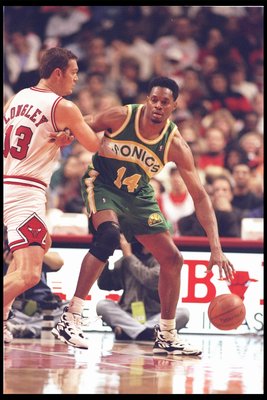
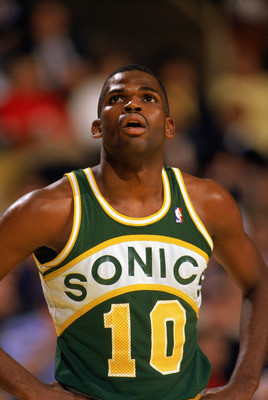
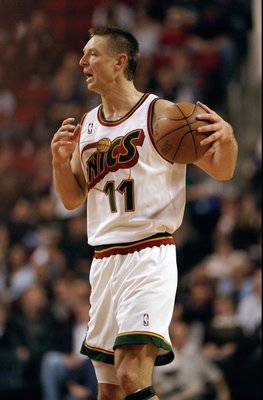
The Sonics had been shrewd in the trade-market between seasons, trading veteran scorer Eddie Johnson to Charlotte for the much younger Kendall Gill. The team had also added the multi-talented Detlef Schrempf from Indiana, sending McKey back in return. The trade would prove to be something of a win-win as McKey, a solid all-around player, added much-needed defensive skills to the high-scoring Pacers. Schrempf on the other hand brought to Seattle a highly refined offensive game, capable of creating shots for himself and others with his passing skills, while possessing a lethal mid-range shot and (at 6'10) an ability to help on the boards.
With the athleticism of Kemp and Payton and Gill now complimented by the silky skills of Schrempf and Perkins, and further bolstered by the veteran wiles of Pierce, Cage and McMillan, it all seemed to be coming together nicely for Seattle under Karl's master-plan..
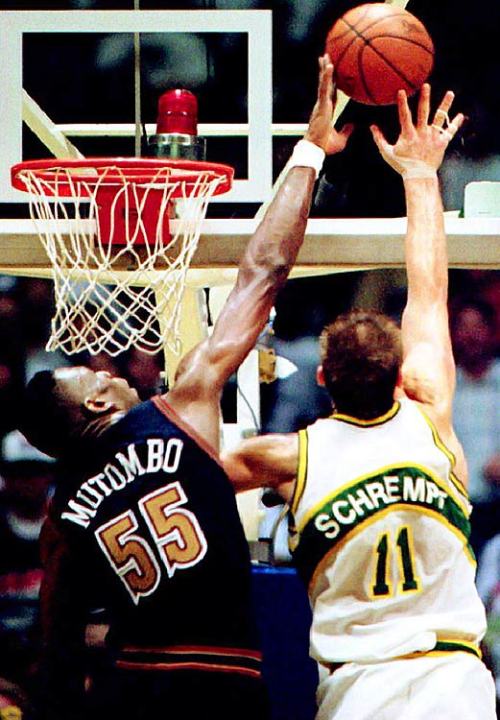
Denver's stunning come-from-behind series victory as the rank underdog in the '94 Playoffs hit Seattle pretty hard. When they were again knocked out in the first round of the '95 playoffs by 'The Lake Show' and Nick Van Exel, the Sonics were fast developing an unwanted reputation for mental fragility in the playoffs.
Frustrated by the inconsistent play of Gill, the Sonics made another excellent move in sending him back to Charlotte in order to acquire quiet-achiever Hersey Hawkins.
Hawkins was a player in Schrempf's mold- unobtrusive, but clinically efficient and a model team player. Both he and Schrempf would likely have been primary scoring options on half the teams in the NBA at this time, but they checked their egos at the door in order to play important supporting roles for Seattle's now-established dynamic duo in Kemp and Payton.
The Sonics would play the 1995-96 season with something of a chip on its shoulder, powering away to the best record in the West once more at 64-18. Able to surround the explosive Kemp with lethal perimeter shooting courtesy of Schrempf, Hawkins and Perkins, Seattle felt they'd made the adjustments to their team needed to thrive in the post-season.
A 4-0 sweeping of the two-time defending champion Rockets in the conference semi-finals sent confidence surging in Seattle. Faced with another experienced playoff opponent in the Conference Finals in the Jazz of Stockton and Malone, the Sonics held their nerve to win a tense seven game series, winning their way through to their first Finals appearance since the 1979 championship.
Seattle was in many ways unlucky to run into a Chicago team that year which might be considered the best of all time. Like Phoenix three years earlier, they were left to rue a slow start to the series. After recovering from the potential indignity of a sweeping to send the series back to Chicago, the Sonics would ultimately fall, pride intact, two games short of a title.
Jim McIlvaine's signing to a lucrative seven-year contract during the great free-agent rush of 1996 proved to be a mistake that would come back to haunt Seattle, again and again, over the coming years. Unbeknownst at the time, it would trigger a domino effect of angst and bad decision making, tearing the team apart from the inside.
A by-product of the NBA's spiraling wage increases and expanding salary cap was that it led to acrimony between those who had signed long-term contracts in the 'old days', and those lucky enough to becoming free agents during these boom times. Nowhere was this divide illustrated more starkly than in Seattle, and it had the unfortunate effect of creating ill-will between the team and their most iconic player.
By 1996, Kemp had provided Seattle with seven seasons of exhilarating basketball, capped by a trip to the NBA Finals, while earning less than $7 million in total wages in the process.
McIlvaine, a second round draft pick with a penchant for blocking shots but precious little else, was lured away from Washington for $35 million over seven years. The hope was that he would help shore up the centre position, perhaps Seattle's greatest weakness. That he would be making five times what Kemp had earned in his first seven years for the Sonics to do this had not gone unnoticed.
Though Kemp fumed and McIlvaine struggled to adapt in Seattle, the Sonics would nevertheless win another 57 games that season before falling in seven games to the 'Big Three' Rockets in the conference semi-finals.
Though Kemp performed well in the '97 playoffs, it would prove to be his swansong in Sonics colours (and in many ways, the finale to his days as a bona-fide star in the league). Still furious with the fat contract handed to the un-tested McIlvaine, Kemp demanded a trade and the Sonics reluctantly obliged, sending him to Cleveland. In return, they received another flawed talent, Vin Baker.
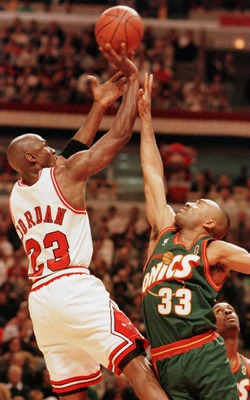
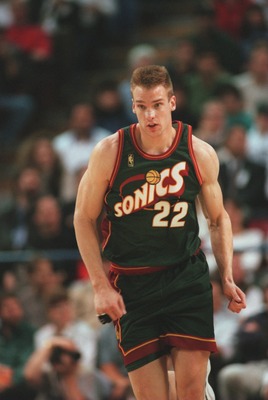
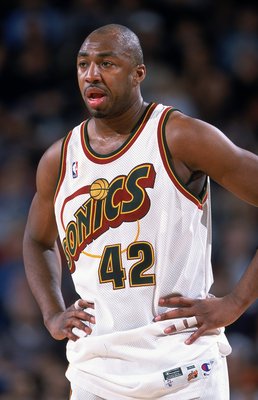
The Sonics' decline from their days as a powerhouse in the West was gradual. In fact, it was not even immediately obvious at first that a decline was approaching. Baker performed well in his first season in Seattle, and the team won a very credible 61 games, before falling to the emergent Lakers in the conference semi-finals.
In reality though, this was the end of an era in the Pacific North West. Club stalwart McMillian was 33 and on the verge of retirement, while veteran stars Perkins (36), Schrempf (35) and Hawkins (31) were well an truly in the autumn of their careers, despite their continued steady play. Even role players including returnee Dale Ellis (37), Jerome Kersey (35) and David Wingate (34) were nearing the end.
The most departure was Karl's though, after a wildly successful seven year stint with the team. Displeased with internal politics, he departed to Milwaukee, leaving former Phoenix coach Paul Westphal to pick up the pieces after the lockout.
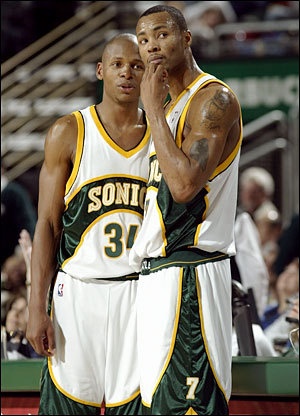
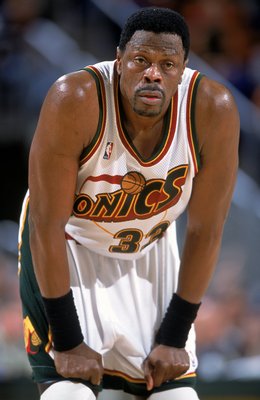
Unfortunately for Westphal, one of the pieces proved to be more difficult to lift than others- Baker (like Kemp ironically), did not return from the lockout in prime athletic shape. His lacklustre play played a large part in Seattle missing the playoffs for the first time in nine years.
The Sonics would spend the six years following Karl's departure hovering around the .500 mark, twice making the playoffs without advancing past the first round.
The fallout from the McIlvaine/Kemp/Karl debacle had perhaps hit Payton hardest, as unlike the rest of his team-mates from the glory days of the 90s he was still in his prime and producing at an All-Star level. Unfortunately his continued strong play merely served to keep the Sonics treading water, too strong to bottom out but lacking the necessary supporting talent to make Seattle a contender again.
Baker's bloated contract was by this stage matched only by his bloated physique. Such little room as the Sonics did have to move were wasted on one-season rentals of veterans Horace Grant and Patrick Ewing. With abrasive new owner Clay Schultz ruffling feathers among management, players and fans, Seattle was quickly becoming an unhappy basketball story.
Payton, barely able to hide his disdain for Schultz, was traded to Milwaukee for Ray Allen. Although Sonics fans had lost an icon, and the last remaining link to the glory days of the previous decade, Seattle had actually managed to make a pretty good deal for itself.
The sweet-shooting Allen at 27 was seven years younger than Payton. Aided by fellow flame-thrower Rashard Lewis and the underrated Brent Barry, Seattle under Nate McMillan was able to remain competitive.
It was nevertheless a somewhat surprising Sonic renaissance that occurred in 2005, with the team winning the NorthWest crown and advancing to the conference semi-finals, where they pushed the eventual champion Spurs to six games before bowing out. Nobody in Seattle could possibly have known that this would be the last Sonics playoff foray that they would witness for quite some time.
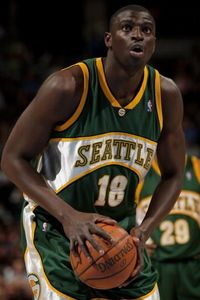
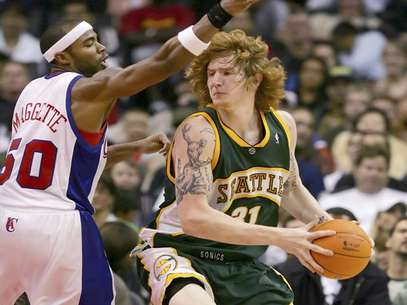
Despite the upturn in fortunes in 2005, behind the scenes chaos reigned in Seattle.
Schultz had managed to provoke animosity among nearly his entire playing and non-playing staff, and had seen his reputation in Seattle nose-dive in the aftermath of Payton's messy departure. His problems did not end there, as he rapidly found himself stuck between a rock and a hard place in losing money playing at Seattle recently updated but increasingly dwarfed and out-dated Key Arena.
Things were going off the rails elsewhere too, with the Sonics blowing three consecutive Drafts in a fruitless search for a competent big man. Robert Swift ('04) provided flowing red locks, tattoos and squatting skills, but no answers in the paint. Johan Petro ('05) and Mohamed Sene ('06) proved to equally giant miscalculations.
The team had fallen to its greatest depths in 22 years by 2007, winning just 31 games. Even more ominously, the much-maligned Schultz had given up on finding a solution to his arena dilemma and sold the Sonics to a group of Oklahoma investors.
Grim days for Sonics fans indeed. Much like in 1990, a favourable bounce of the ping pong ball in the 2007 Lottery offered a glimmer of hope..
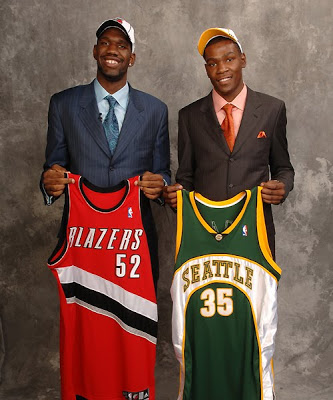
Just as with Gary Payton in the 1990 draft, Seattle struck the jackpot with 2007 Draftee Kevin Durant. If Sonics fans had been left angry at seeing Payton's days in Seattle ended pre-retirement in 2003, what would happen next would leave them utterly distraught.
I won't rake over old graves here- Sonicsgate can tell the story much more eloquently that I could hope to.
OKC proved to be a small-market success story of sorts, a combination of luck, shrewd management and fanatical crowd support turning the team into something of an unlikely juggernaut. Much as with Memphis, it remains to be seen whether they have missed the fleeting, narrow window of opportunity that all small-market teams must negotiate (if they're lucky).
With Durant and Westbrook, the Thunder are going to be good for a while. What that will ultimately mean in the long run is anybody's guess- it's not so very long ago that we might have pondered what the future held for another dynamic duo, several thousand kilometres north-west of Oklahoma in a rain-swept coastal metropolis.
They remain a sleepless- and haunted- bunch in Seattle.
Is there a single image that can simultaneously cause pain to supporters of two different teams? Such an image of what could've and should've been for both teams
Great post though, really hit the nail on the head with the McIlvaine signing, that one free agent signing was basically the catalyst for killing the whole team, so much terrible drafting in the search for that illusive Shaq stopper, I mean Sene, Petro, Swift... 3 years in a row they wasted first round picks =/.
Still at least there was 2 great combos to watch during that time period, many years of mediocrity but Kemp + Payton pulled off some of the most exciting plays I've ever seen, while Lewis and Allen were great fun to watch when they were on a hot streak.
- May 23, 2012
- 15,518
- 14,254
- AFL Club
- Collingwood

- Other Teams
- Tottenham Hotspur, New Orleans Pels
- Thread starter
- #113
Is there a single image that can simultaneously cause pain to supporters of two different teams? Such an image of what could've and should've been for both teams
Basketball in the entire Pacific North West has suffered through a pretty tumultuous time.
Seattle and Vancouver both lost their teams, and Sacramento very nearly joined them.
Meanwhile Portland has been cursed on and off the court and Golden State have been been a running punchline for years.
I hope the wheel turns, because the irony is that the area is basketball heartland in many ways- fanatical support, produces a lot of quality players.[/quote]
stewie griffen
Make me an Admin!
On the Seattle topic, just came across this on twitter


peternorth
Moderator
- May 6, 2005
- 127,360
- 75,523
- AFL Club
- Richmond
- Moderator
- #115
seattle had arguably the best jersey and logo around (featured in the summary post).
- May 23, 2012
- 15,518
- 14,254
- AFL Club
- Collingwood

- Other Teams
- Tottenham Hotspur, New Orleans Pels
- Thread starter
- #116
seattle had arguably the best jersey and logo around (featured in the summary post).
I did come across this in my research..
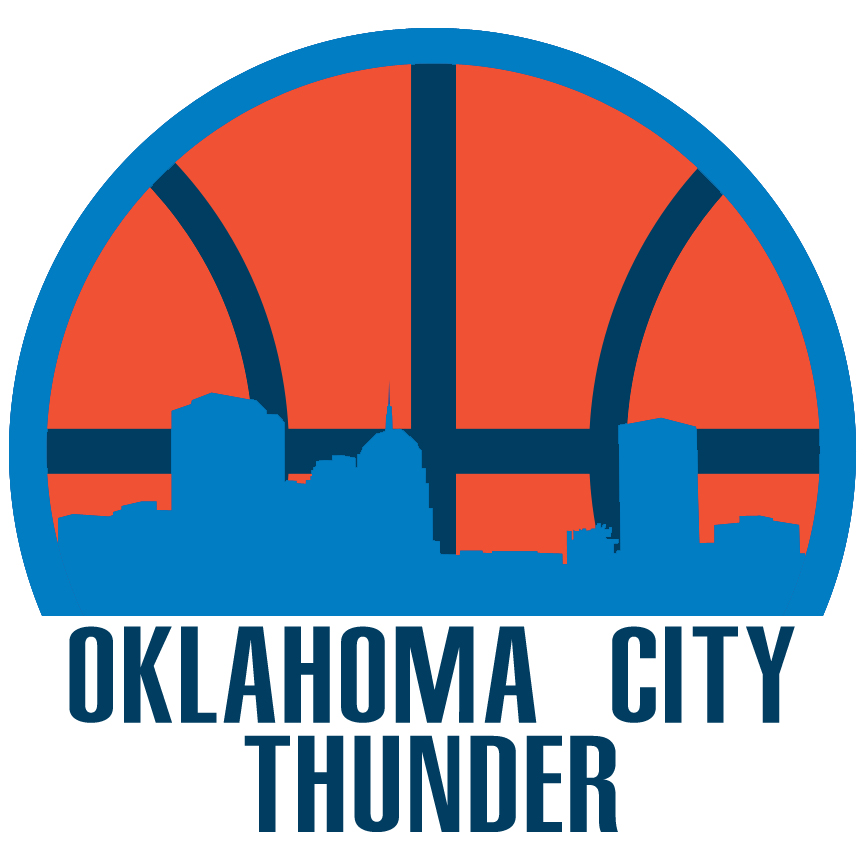
A spit in the face of the Seattle brand...I did come across this in my research..

God I feel for the Sonics... But I guess with time, they'll get a team somehow.
Yeah no kidding.. The only way they could piss on the Sonics more would be to redesign their jersey to be a blue and orange rip off.A spit in the face of the Seattle brand...
God I feel for the Sonics... But I guess with time, they'll get a team somehow.
That would be the lowest of blows...Yeah no kidding.. The only way they could piss on the Sonics more would be to redesign their jersey to be a blue and orange rip off.
- May 23, 2012
- 15,518
- 14,254
- AFL Club
- Collingwood

- Other Teams
- Tottenham Hotspur, New Orleans Pels
- Thread starter
- #120
A spit in the face of the Seattle brand...
God I feel for the Sonics... But I guess with time, they'll get a team somehow.
I can only see it being the Bucks or expansion- hopefully the latter.
For better or worse, the NBA seems to believe that it needs to be represented in the Deep South.
Yeah no kidding.. The only way they could piss on the Sonics more would be to redesign their jersey to be a blue and orange rip off.
It's genuinely depressing to read comments from Sonics fans regarding hope- they're so angry, real post-traumatic stress stuff.
Even if the NBA re-started the Sonics tomorrow, there would be an element of rancour that would be hard to erase.
Footypie32
especias secreto
The single sided rivalry between Sonics and Thunder would be epic though, the first time they play the Thunder in Seattle would be a sight to behold.It's genuinely depressing to read comments from Sonics fans regarding hope- they're so angry, real post-traumatic stress stuff.
Even if the NBA re-started the Sonics tomorrow, there would be an element of rancour that would be hard to erase.
- May 23, 2012
- 15,518
- 14,254
- AFL Club
- Collingwood

- Other Teams
- Tottenham Hotspur, New Orleans Pels
- Thread starter
- #123
The single sided rivalry between Sonics and Thunder would be epic though, the first time they play the Thunder in Seattle would be a sight to behold.
Tbh, I think Seattlites would rather steal Durant back as a free agent than beat him in a game.
That would be their ultimate revenge on Clay Bennett.
Very true, the way Seattle fans went nuts over him going to that Summer League game, then a lot, well they got a bit over excited about this quote.Tbh, I think Seattlites would rather steal Durant back as a free agent than beat him in a game.
That would be their ultimate revenge on Clay Bennett.
“I’ve had a fun time here in Seattle. I miss you guys. Thank you for the warm welcome, man. I can’t wait to come back. Thank you. I appreciate it.”
I mean obviously taking back Durant would be amazing, but I don't believe he meant coming back as a player in this instance sadly.
peternorth
Moderator
- May 6, 2005
- 127,360
- 75,523
- AFL Club
- Richmond
- Moderator
- #125
the Seattle-Oklahoma City Thunder Sonics
Similar threads
- Replies
- 298
- Views
- 6K
- Replies
- 213
- Views
- 5K
- Replies
- 239
- Views
- 6K
- Replies
- 207
- Views
- 5K
- Replies
- 69
- Views
- 2K
- Replies
- 191
- Views
- 5K
- Replies
- 117
- Views
- 4K




